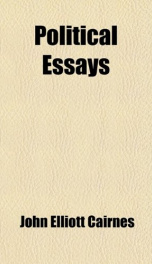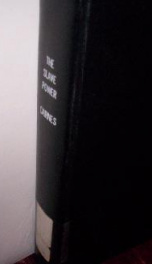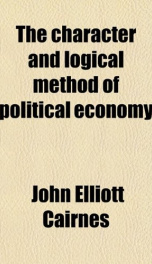political essays

Purchase of this book includes free trial access to www.million-books.com where you can read more than a million books for free. This is an OCR edition with typos. Excerpt from book: III. INTERNATIONAL LAW. It is now about two and a half centuries since Grotius, in his great work, gave to the world the first clear outline of a scheme of international jurisprudence. The subject has since engaged the thoughts of many very learned and of a few very able minds. The relations and mutual pretensions of nations have, moreover, during this period, been submittedwith the growth of international trade, the collision of international interests incident to the peopling of a new continent, and a succession of warsto the ordeal of a long and diversified experience ; and the practices thus established and mutual concessions thus obtained have, under the manipulation of Prize Courts and diplomatists, been wrought into a tolerably compact and coherent system. Yet, notwithstanding the progress made in the practical art of administering international affairs, and notwithstanding the existence of many valuable treatises in the nature of digests and expositions of the actual international code, or of portions of it,of such works, for example, as those ofOrtolan, Wheaton, Kent, Manning, and othersit must, I think, be admitted that little has yet been done for the philosophy of international law. Bentham, Austin, and the two Mills have indeed given us some valuable analyses of fundamental juridical ideas; Mr. J. S. Mill, in particular, has in detached essays offered some pregnant suggestions ; and more recently Mr. Maine, in his not less profound than learned work on " Ancient Law," has incidentally thrown a clear light on some recondite points in the development of international jurisprudence. Yet a work treating international law as a whole, in a philosophical spirit, and with reference to the altered conditions in many important respects of international intercourse, is...
Info about the book
Author:
Series:
Unknown
ASIN:
B008KABCQS
Rating:
4/5 (3)Your rating:
0/5
Languge:
English
Users who have this book
Users who want this book
What readers are saying
What do you think? Write your own comment on this book!
write a commentif you like political essays try:
Do you want to read a book that interests you? It’s EASY!
Create an account and send a request for reading to other users on the Webpage of the book!






